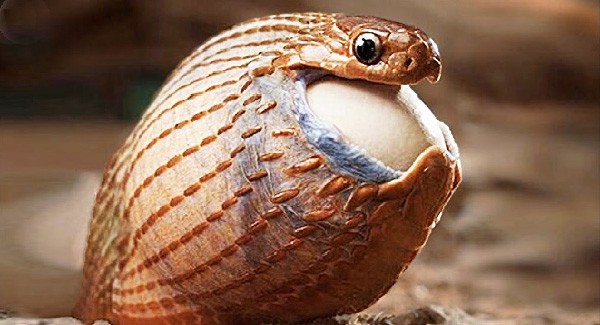
When we think of snakes, we generally consider them carnivorous predators that kill small animals through constriction or venom. For most snakes, that would be true, but not all. There is a group of snakes known as “egg-eating snakes” that have evolved to live exclusively on birds’ eggs. Imagining a snake swallowing an egg three times its width is rather comical, but it truly exists out there in the wild! Today, we are going to learn and discover all about these egg-eating snakes and get their complete story— you may just learn something new!

What snakes eat eggs? Can they be pets? Although many snakes can, and do, eat eggs, the majority survive by eating other live prey too. Only the Indian egg-eating snake (elachistodon westermanni) and the African egg-eating snake (dasypeltis) have the specific biological make-up required to survive solely on birds’ eggs.

The Indian egg-eating snake is extremely rare and so the more common African egg-eating snake is the type usually found as a pet. There are several species of the African egg-eating snake; the most common for pet purposes is the rhombic egg-eater or common egg-eating snake (dasypeltis scabra).

All members of both groups are non-venomous and have adapted to live in locations with lots of birds (to provide enough eggs for their diet). Many of these snakes are relatively common, but there are a few species that are quite rare!
How big is an African egg-eating snake? How long do they live? Egg-eaters are fairly small. The females will grow to about two to three feet, but the males are smaller. This is a huge factor in determining the size of eggs they eat as many eggs, including chicken eggs, will be too large for them.

Assuming that the snake’s treated well, a pet egg-eating snake is likely to live longer than a wild snake and can live for over ten years, although this will depend on various factors, including whether they are fed the correct type and size of egg, how good the snake’s appetite is and how often it’s fed, the state of their living conditions and whether they become sick.